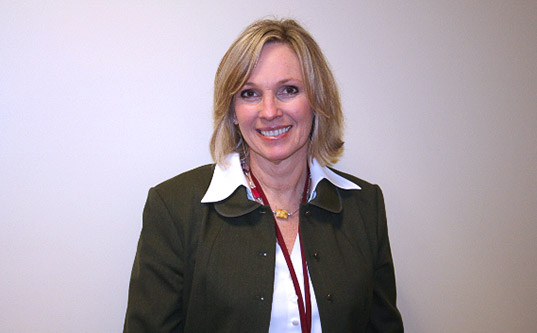Local Woman Learns Importance of Screening Colonoscopy After Colon Cancer Diagnosis
January 04, 2021

Healthy her entire life, Ellen Smith had always followed her doctor’s recommendations.
“Every year I received a card in the mail, saying I was due for an annual PAP smear and exam, and I had gone to those appointments religiously,” Ellen said.
Yet ever since Ellen had turned 50, her physician had stressed how important it is to follow the colorectal cancer screening guidelines and get a colonoscopy, since risk does increase with age. As life sometimes gets in the way, several years passed by and Ellen still had not had her baseline colonoscopy screening. In 2012, having no obvious signs of colon issues except for constipation, Ellen decided to finally schedule her screening.
“I was 56 when I went in for my first colonoscopy, and there was a problem right away,” Ellen said. “The gastroenterologist, Dr. Rami Abbass, couldn’t do the routine colonoscopy because there was such a tight blockage.”
Colon Cancer Diagnosis
At that moment, Ellen was told she had colon cancer, and the doctor said he was worried that the cancer had spread to her liver. Shocked at the news, Ellen went home and right away someone from University Hospitals called to schedule appointments for an MRI and CT scan.
Minimally Invasive Surgery for Stage 4 Colon Cancer
“My surgeon at University Hospitals Seidman Cancer Center said I had stage 4 colon cancer and needed immediate laparoscopic colon surgery,” Ellen said. “He then did other tests to see how much cancer had metastasized in my liver.”
The doctor told Ellen she had three cancerous lesions on her liver, including one that was near a critical artery.
The day after Mother’s Day in 2012, Ellen had colon cancer surgery at UH followed by six rounds of chemotherapy to shrink the tumors in her liver. At the same time, the surgeon put in an ostomy bag, a plastic bag on the outside of the body that collects stool. To her surprise, she was only out of work for one week after the surgery thanks to the minimally invasive approach.
Advanced Regenerative Liver Therapy at University Hospitals

For patients in whom colon or rectal cancer has spread only to the liver, long term cure can be possible if the tumor in the liver can be removed. Ellen was offered an aggressive treatment plan that involved removing the tumor in her liver and reconstructing the blood vessel needed to keep the liver healthy. However, with the significant amount of Ellen’s liver that would need to be removed, specialists at University Hospitals first moved ahead with advanced regenerative liver therapy. Her regenerative procedure was successful, and Ellen’s surgeon, Christopher Siegel, MD, was able to perform the intricate surgery to remove 70 percent of her liver and part of her vena cava. Vascular reconstruction was successful, and her liver recovered quickly.
After the surgery, Ellen progressed well and was in the hospital for six days this time because of the major liver surgery.
Recovering from Cancer Surgery
Although she required some extra care during her recovery, Ellen generally progressed well and within three months of her liver surgery, she went back on chemo every other week for 12 weeks. In June 2013, she had her ostomy closed. Ellen says now she is feeling wonderful, thanks to the top notch expertise at University Hospitals and the ongoing support of her husband and their four daughters.
‘Don’t Learn the Hard Way’
Ellen recommends that everyone see their doctor: “Women especially need to take care of themselves. I have learned through personal experience to take advantage of the recommended screening tests and follow my doctor’s orders.”
“Today I feel great,” Ellen said. “With the laparoscopic cancer surgery, I was out of work a much shorter time. Most importantly, every member of my UH team was top notch in their field and so supportive of me.”


